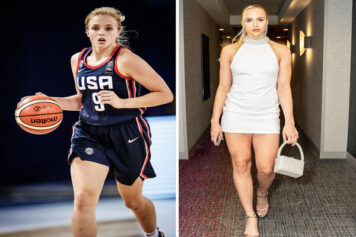The International Swimming Federation has sparked a storm of controversy after banning swim caps designed for dark hair, saying they do not follow “the natural shape of the head” guidelines.
A spokesperson for FINA, also said the athletes did not use and need “caps of this size and configuration.”
Black swimmers "disappointed and heartbroken" by decision to ban swimming cap from Olympics that's made to cover their hair https://t.co/KuXrLCQEWf
— BBC News (World) (@BBCWorld) July 2, 2021
The setback has been so resounding that FINA has agreed to “review” the policy.
The caps or beanies created by the British company Soul Cap, which is owned by Blacks, are larger than those used in the Olympics, in order to accommodate larger and longer hair and braids.
They do not provide a competitive advantage in any way, shape or form. In fact being bigger would probably put swimmers at a competitive disadvantage, being that the caps would likely cause more drag, or resistance, for a swimmer.
FINA’s policy has been criticized not only as a severe slap in the face of elite swimmers, but also as a symbol of the sport’s insensitive barriers to young black swimmers.
“FINA’s ban is likely to “discourage many young athletes from participating in the sport as they progress in competitive swimming,” Soul Cap co-founder Toks Ahmed mentioned on social media. “For young swimmers feeling included and seeing themselves is a sport at a young age is crucial.”
In fact, Danielle Obe, a founding member of the Black Swimming Association in the UK, believes the decision reinforces systemic and institutional inequalities that have long hampered the sport. She noted that Olympic swimmers wear caps created for Caucasian hair. Those caps don’t work for Black hair, which “defies gravity.”
“We need the space and volume that products like Soul Caps allow.” “Inclusion is realizing that no head shape is normal.”
The battle for Soul Caps is seen as a much larger social struggle for acceptance and respect not just for Black hair but Blacks as a whole. But it highlights respecting our hair and hairstyles in the schools, workplace and military.
The ruling does not specifically apply to Black hairstyles — as did “previous bans by the US military’s and various businesses and workplaces. This ruling ignores the needs of Black women, to protect their hair and hairstyles when swimming, says Professor Noliwe Rooks, the president of African Studies at Brown University.”
On Friday FINA agreed to review the situation.” And the issued the following statement on behalf of the ruling.
FINA is “committed to ensuring that all aquatic athletes have access to appropriate swimwear for competition where these particular swimwear does not confer a competitive advantage. “FINA is currently reviewing the situation with “Soul Cap” and similar products, understanding the importance of inclusiveness and representation.”
Not only is Soul Caps banned at the Olympics, but also in local, regional and national competitions. The caps can be used for “recreational” and “teaching” purposes, the organization reported.
Last year Soul Cap, teamed up with Alice Dearing, who qualified last month as the first Black swimmer to represent Britain at the Olympics.
The outcry around Soul Caps follows controversy over African-American sprinter Sha’Carri Richardson’s suspension after she tested positive for cannabis, as well as backlash after Black hammer thrower Gwen Berry turned her back to the American flag during the anthem.



